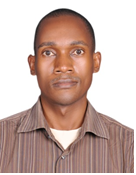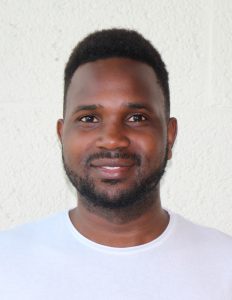The modern agriculture value and research chain contain many data management aspects that are even giving rise to novel domains such as agro-informatics. Current low levels of human and technological capacity to harness respective data-intensive methods form a major developmental challenge for the South. This project aims at improving capacity in (a) the field of data science pertaining to data gathering, storage, analytics and dissemination (b) the domain-specific knowledge needed to offer ICT-support for agricultural research.
The broad objective of the project is to reinforce JKUAT’s human and infrastructural capacity in order to bring the research in tools for data-science as well as the successful application and valorisation of such technologies in the specific context of agriculture research to international standards.
The first activity involves strengthening of the human capacity in the scientific exploration of generic tools for data science technologies, and in the application of domain-specific tools in the context of agriculture research. We envision one PhD in software engineering tools for (big) data science and three MA’s. The second activity entails developing and making available a suite of tangible assets that are part of the generic body of knowledge on data science tools and techniques. The third activity involves developing and making available a suite of tangible assets that are part of the domain specific body of knowledge on how to apply state of the art technologies in data science. The fourth activity entails the assembly of a hardware and software infrastructure for (i) data management and (ii) data science research activities. The fifth activity involves setting up a dissemination platform for project results for Projects 1-3. The last activity entails improving the human capacity regarding proposal writing, scientific communication and the correct application of statistical methods in the execution of ongoing and the launching of future research projects.




Patrick Gakuo Muriuki is an MSc graduate of Vrije Universiteit, Brussels. He is a beneficiary of the LCEFoNS Programme and specialized in Software Languages and Engineering.

Samuel Ngugi Ndung’u is an MSc graduate of Vrije Universiteit, Brussels. He is a beneficiary of the LCEFoNS Programme and specialized in Software Languages and Engineering.
The School of Computing and Information Technology (SCIT) has human and physical capacity that enable it to: offer highly competitive ICT education, conduct high-quality ICT research, and produce outstanding technological innovations. Owing to the key role the school has been playing in the ICT human capacity building for the country and the region, the Northern Corridor Integration Projects (NCIP) initiative has designated JKUAT as a Regional Centre of Excellence for training in ICT and related skill areas. The school also works closely with the Nairobi Industrial and Technology Park, which has won the Government of Kenya tender to supply primary school pupils with digital learning devices.
| Team member(s) North | ||
|---|---|---|
| Mr. Kennedy Kambona | Vrije Universiteit Brussel | Mobile Systems, Cloud Systems |
| Prof. Bernard Manderick | Vrije Universiteit Brussel | AI, Machine Learning, Data Analysis, Applied Python |
| Prof. Roel Braekers | UHasseltn | Biostatistics, Statistical Bio Informatics |
| Prof. Elisa Gonzalez Boix | Vrije Universiteit Brussel | Software Engineering, Software Frameworks |
| Team member(s) South | ||
|---|---|---|
| Mr. Philip Oyier | JKUAT | Information Technology |
| Dr. George Okeyo | JKUAT | Computer Science |
| Mr. Augustus Kamau | Dedan Kimathi University of Technology | Software Development |
| Mr. Arthur Wainaina | JKUAT | ICT Infrastructure |